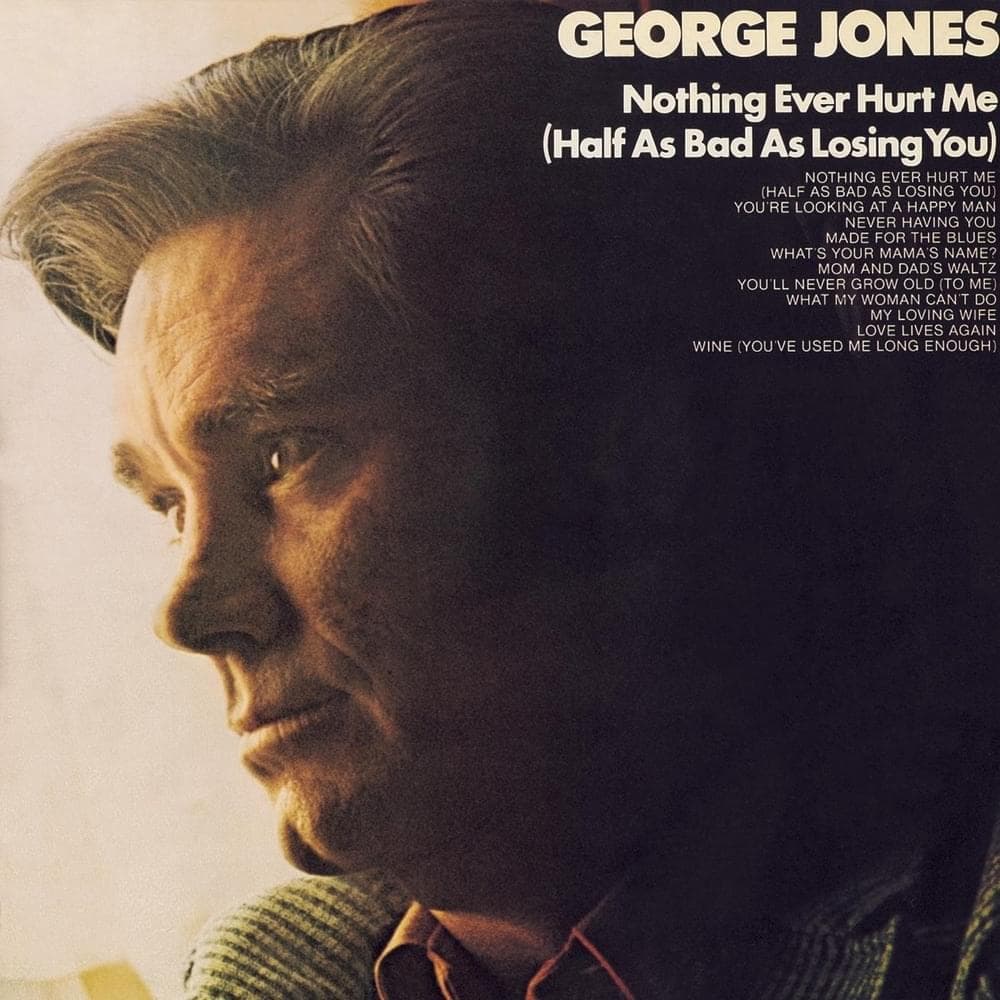
A raw, unflinching reckoning with alcoholism, where a man finally blames his one true, destructive mistress: the booze itself.
There are certain songs, dear friends, that require no performance; they simply are the truth, sung by the only man who had the right to sing them. George Jones’s “Wine (You’ve Used Me Long Enough)” is precisely that—not a song of heartbroken pity, but a gut-punch of acknowledgment. It is the sound of The Possum looking his longest, most dangerous love affair square in the eye and finally saying, “No more.” This piece of raw-nerved country soul wasn’t his biggest hit, but its honesty makes it one of his most essential recordings, a spiritual autobiography set to a honky-tonk waltz.
Released in 1973, “Wine (You’ve Used Me Long Enough)” served as the flip side—the B-side—to the Top 10 single, “Nothing Ever Hurt Me (Half as Bad as Losing You).” While it was overshadowed by its A-side, its impact was immediate and deep among those who understood the pain behind the man. Crucially, it did chart independently in Canada, peaking at an impressive No. 3 on the RPM Country Singles chart, proof that its message resonated powerfully enough to find its own audience. It was included on the 1973 album, Nothing Ever Hurt Me (Half as Bad as Losing You), released during a period of immense personal turbulence for Jones.
The story behind this song is, in many ways, the entire, chaotic, brilliant story of George Jones himself during the 1970s. The song was co-written by Jones and his then-wife, Tammy Wynette, a collaboration that speaks volumes. It was a cry for help from a couple whose beautiful, but equally destructive, marriage was famously plagued by Jones’s legendary battles with alcohol and substance abuse. The lyrics aren’t a metaphorical lament; they’re a direct, venomous address to the drink itself—personifying the bottle as a manipulative, cheating partner who has stolen his life, his health, and his love. The song begins with the narrator finally confronting the source of his misery: “Wine, you’ve used me long enough / And now I’m through with you.” It’s a moment of profound, sober clarity breaking through a fog of decades.
For older fans, those of us who lived through the tumultuous years of “No-Show Jones” and watched the headlines documenting his wild escapades, this song evokes a powerful mix of sadness and recognition. We knew the man was a genius, arguably the greatest country voice of all time, yet we also knew the demon he battled. When Jones sings about “Wine,” you aren’t just hearing a performance; you are hearing the anguish of a man whose artistry was inseparable from his addiction, a man wrestling in real-time with the self-inflicted wounds that made his music so authentically devastating. It is a brilliant example of the “Countrypolitan” sound of the era, produced by the great Billy Sherrill, where lush orchestration and background vocals provided a smooth counterpoint to Jones’s incredibly raw, emotionally shattered delivery—a dichotomy that only heightens the track’s impact. It is a timeless testament to the brutal price of the honky-tonk life.